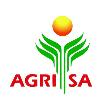Agri SA says no to centralisation of food relief for the needy!
7 May 2020
Agri SA objects to the centralisation and hijacking of food relief by any government entity and the allocation of humanitarian and financial aid based on race. The lockdown imposed by the government in terms of the Disaster Management Act has caused unemployment and hunger to skyrocket. This could have a devastating effect on social stability and the safety of all citizens.
For this reason, Agri SA and its 90 plus affiliates donate tons of food daily to the needy throughout South Africa. Great care is taken with the collection and distribution of vegetables, fruit and other non-perishable food, while the Covid-19 precautionary measures are strictly adhered to during every relief effort.
Individual farmers, agricultural associations, provincial affiliates, commodities, churches and non-governmental organisations have reacted spontaneously to Agri SA’s food relief campaign to assist thousands of people in need. For this reason, these efforts should not be hampered by the government through bureaucratic red tape and draconian measures. In fact, section 27 of the Constitution states that every person has the right to sufficient food and water.
The Foodstuffs, Cosmetics and Disinfectants Act of 1972, which regulates the manufacture, sale and importation of food, is not applicable to the regulation of food donations. This also applies to the Agricultural Product Standards Act of 1990. The latter deals with the sale of agricultural products and is also not applicable to products that are donated without any payment received for such products.
There is no national ban on charitable donations of food nor does the Disaster Management Act and Covid-19 regulations prohibit such donations. It is possible, however, that certain local authorities may, for the sake of order and adherence to health standards, require persons or organisations to apply for permits to distribute food. It makes sense to consult local authorities and keep them informed of such efforts.
Advice to farmers and organisations that wish to distribute food is as follows:
- Ensure that the food is safe for human consumption and that basic hygiene standards are followed when handling and transporting food.
- Try to determine whether the local authority within whose jurisdiction the area where food is to be distributed falls, does in fact implement a permit system;
- Preferably use well-known welfare organisations, churches or non-governmental organisations with a proven track record and an existing permit to distribute donations;
- Preferably do not become involved in the distribution of food parcels but instead deliver them to churches, welfare organisations and non-governmental organisations with a good reputation; and
- Ensure that everyone involved wears masks, follows hygiene protocols and maintains the necessary social distancing.
It is important, however, not to allow councillors, politicians and municipal officials to hijack and bureaucratise food for political purposes. There is no regulation or law that requires the centralisation of food relief via state packing houses. It is also unacceptable and immoral to withhold food relief or any other assistance on the basis of race.
Issued by Thea Liebenberg, Media Liaison Officer, Agri SA, 7 May 2020

